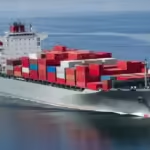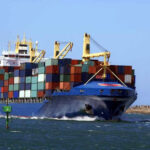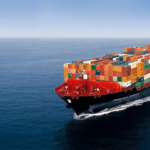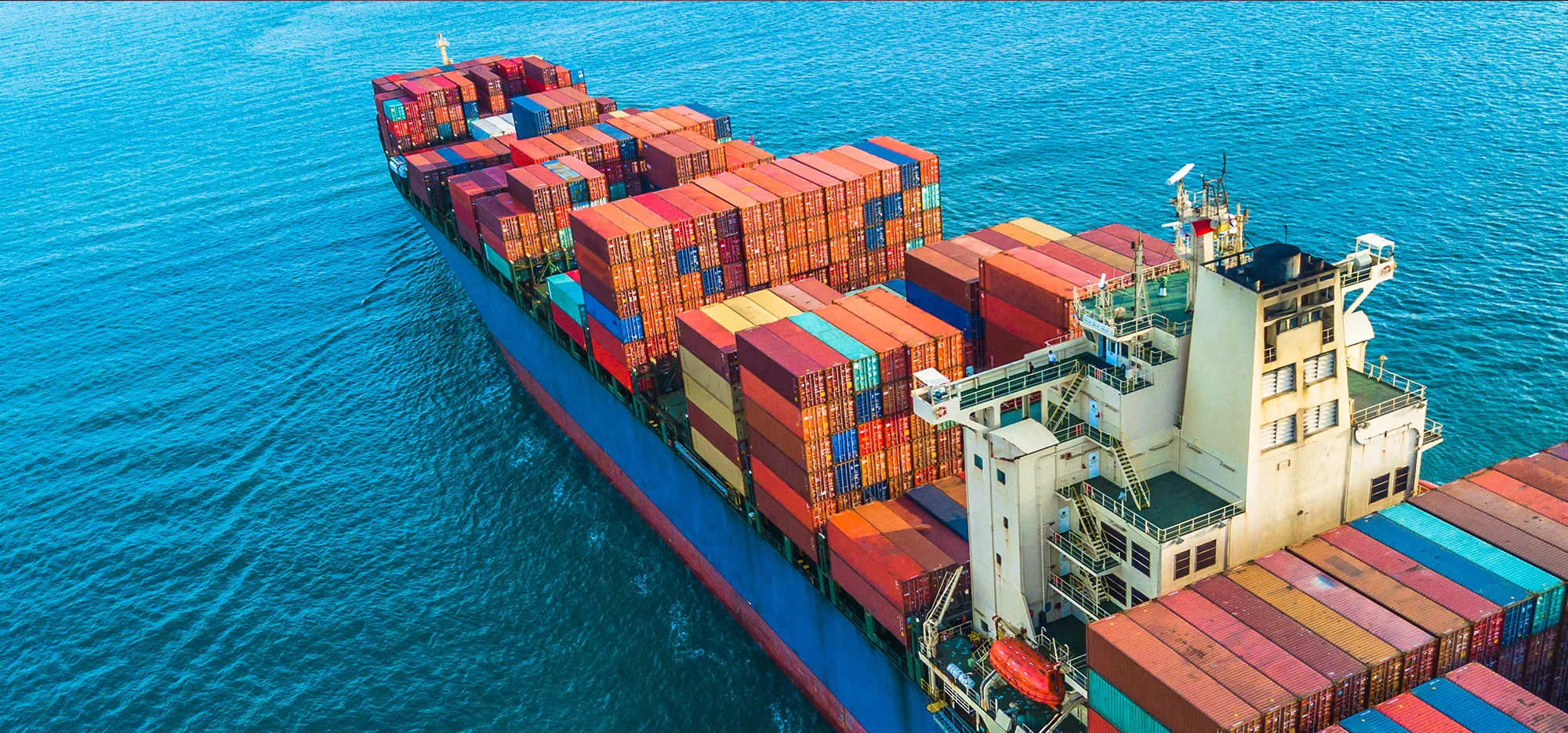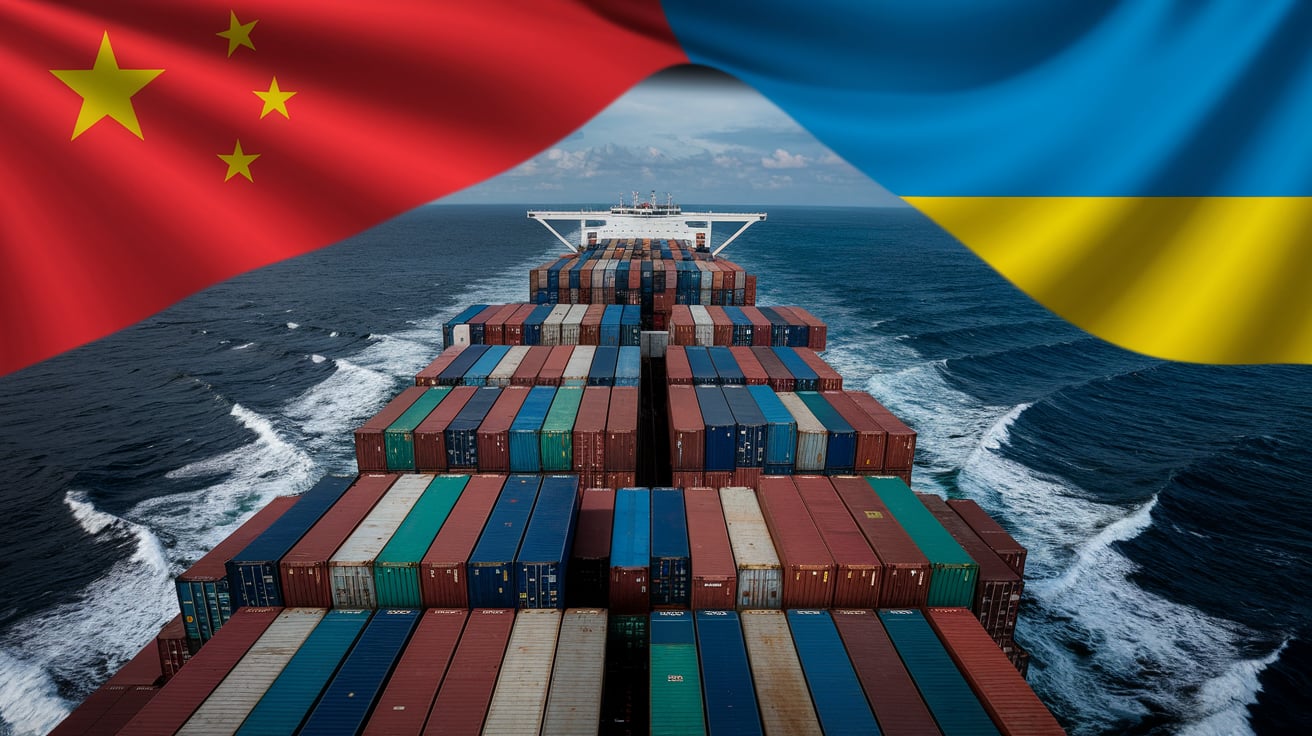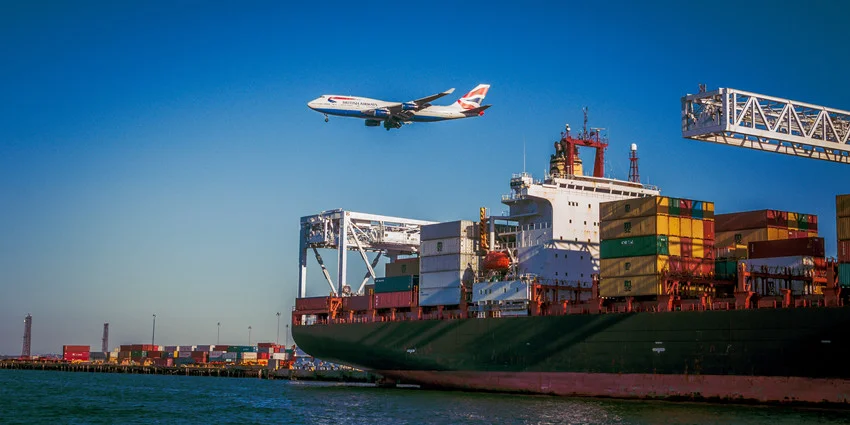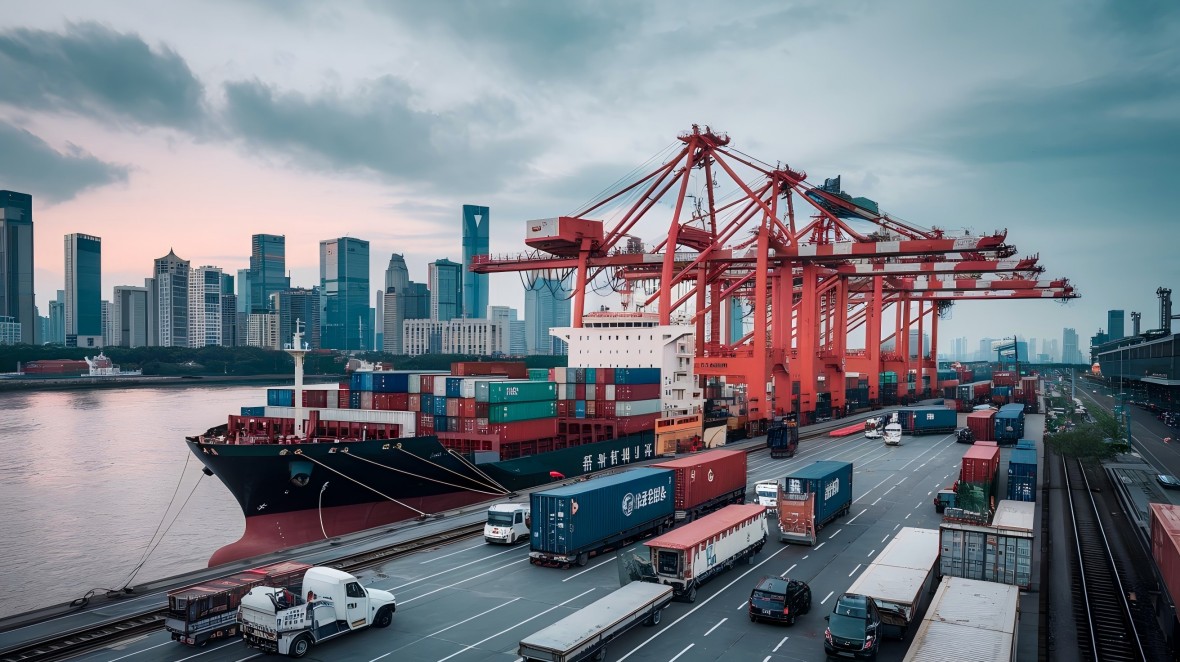Navigating the world of logistics can be daunting, especially when it comes to importing goods from China to Rwanda. Sea freight has emerged as a popular choice for businesses seeking a cost-effective, reliable, and environmentally friendly method of transportation. With its capacity for large shipments, versatility in container options, and dependable transit times, sea freight is well-positioned to meet the diverse needs of importers. In this guide, we will explore the essential aspects of sea freight, including the different service types, factors influencing shipping costs and delivery times, and the importance of choosing the right logistics partner. Whether you are a small business or a large enterprise, understanding these elements can empower you to make informed decisions and optimize your shipping experience.
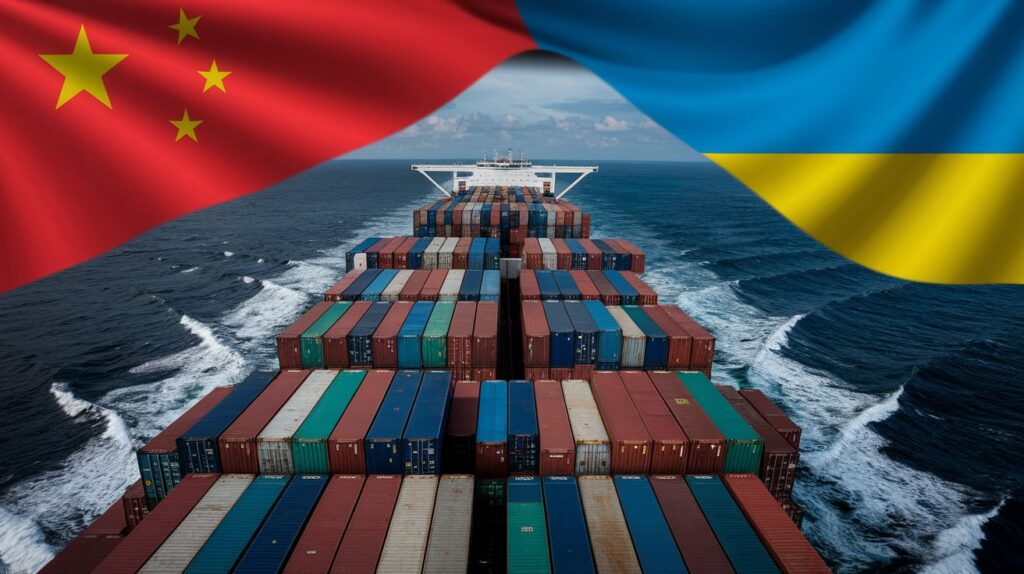
Why Choose Sea Freight for Shipping from China to Rwanda?
When it comes to importing goods from China to Rwanda, sea freight stands out as an exceptionally viable option. This mode of transportation offers various significant advantages that cater to the needs of businesses of all sizes.
Cost-Effective
One of the most compelling reasons to choose sea freight is its cost-effectiveness. Compared to other shipping methods, such as air freight, sea freight tends to be considerably cheaper, especially for larger quantities. This is particularly pertinent for businesses looking to optimize their shipping budgets while maintaining efficiency. As per the World Bank’s Logistics Performance Index, sea freight remains the most economical option for bulk shipments, making it an attractive choice for businesses focused on profitability.
Accommodates Large Shipments
Sea freight is particularly beneficial for companies dealing with substantial volumes of goods. Vessels are capable of transporting large quantities of cargo, which is an essential factor for manufacturers and distributors in Rwanda looking to import various products from China. With the capacity to handle everything from heavy machinery to bulk food products, shipping by sea allows businesses to streamline their supply chains and reduce the frequency of shipments.
Versatile Container Options
Shipping by sea provides a wide array of container options, accommodating different types of goods. From standard 20-foot and 40-foot containers to specialized containers for perishable goods or oversized cargo, businesses can choose the type that best suits their needs. This versatility ensures that your goods are transported safely and efficiently, regardless of their nature.
Reliable Transit Times
While shipping by sea may take longer than air freight, it offers reliable transit times that businesses can plan around. Modern shipping lines provide detailed schedules and tracking, allowing businesses to manage inventory effectively and anticipate delivery dates. The typical transit time from China to Rwanda can range from 25 to 45 days, depending on the origin port and shipping route, which enables better supply chain management.
Environmentally Friendly
With increasing attention on sustainable practices, choosing sea freight is a more environmentally friendly option compared to air freight. Transportation by sea generally results in a lower carbon footprint, as ships can carry a significant amount of cargo at once, distributing emissions across all goods transported. This eco-friendly aspect is becoming increasingly essential for businesses aiming to enhance their corporate social responsibility (CSR) credentials.
Reduced Risk of Damage
Lastly, shipping via sea has been shown to have a reduced risk of damage. Containers are designed to withstand harsh marine environments, and goods are stowed securely, minimizing movement during transit. This level of security is particularly vital for fragile or high-value items, giving businesses peace of mind knowing their cargo is in safe hands.
Types of Sea Freight Services
Understanding the different types of sea freight services can help businesses make informed decisions based on their specific shipping needs. Two primary options exist: Less Than Container Load (LCL) and Full Container Load (FCL).
Less Than Container Load (LCL)
Less Than Container Load (LCL) is ideal for smaller shipments that do not require an entire container. In this case, shippers share container space with other consignments. This option is particularly advantageous for businesses that import smaller quantities but still want to take advantage of the cost-effectiveness of sea freight. LCL shipments typically operate on a ‘pay for what you use’ basis, allowing businesses to save on shipping costs and reduce waste. Moreover, LCL services are available at numerous ports, making them accessible for various import needs.
Full Container Load (FCL)
For larger shipments, Full Container Load (FCL) is the preferred choice. This option involves the exclusive use of a container, allowing businesses to fill it entirely with their goods. FCL shipments often result in faster transit times and reduced handling, as the container is sealed and transported directly to its destination without needing to shift cargo. This method is particularly suitable for businesses with significant shipping volumes, as the cost per unit decreases when utilizing an entire container.
Comparison Table of LCL and FCL
| Feature | Less Than Container Load (LCL) | Full Container Load (FCL) |
|---|---|---|
| Cost | Generally lower for small shipments | More cost-effective for larger shipments |
| Container Usage | Shared with other consignments | Exclusive use |
| Transit Speed | Slower due to consolidation | Faster due to direct transport |
| Flexibility | High, suitable for varied cargo sizes | Less flexible, requires full container |
| Risk of Damage | Higher due to multiple handling | Lower due to minimal handling |
Choosing the right type of sea freight service is crucial for optimizing logistics and ensuring timely delivery of goods. Relying on a professional logistics partner, like Dantful International Logistics, can help streamline the shipping process, offering tailored solutions such as door-to-door shipping, customs clearance, and warehouse services to meet your specific needs.
For companies seeking a reliable and comprehensive logistics partner for shipping from China to Rwanda, Dantful provides a highly professional, cost-effective, and high-quality, one-stop international logistics service tailored to the needs of global traders. Explore Dantful International Logistics today for seamless shipping solutions that facilitate your business growth.
READ MORE:
- Shipping From China To Algeria
- Shipping From China To Angola
- Shipping From China To Morocco
- Shipping From China To Nigeria
- Shipping From China To Kenya
- Shipping From China To Tanzania
- Shipping From China To South Africa
Factors Affecting Sea Freight Costs and Delivery Times
When shipping goods from China to Rwanda, multiple factors can influence both the cost and delivery times associated with sea freight. Understanding these elements is crucial for businesses looking to optimize their logistics and budget effectively.
Shipping Ports
The choice of shipping ports plays a significant role in determining transit times and overall shipping costs. Major ports in China, such as Shanghai, Shenzhen, and Ningbo, are hubs of international trade and can offer faster and cheaper shipping options compared to smaller ports. Similarly, the port of arrival in Rwanda, primarily the Port of Dar es Salaam in neighboring Tanzania, also impacts delivery speed.
Comparison of Major Ports
| Port | Country | Approximate Distance to Rwanda (km) | Typical Transit Time (days) |
|---|---|---|---|
| Shanghai | China | 7,300 | 35-45 |
| Shenzhen | China | 7,200 | 30-40 |
| Ningbo | China | 7,300 | 35-45 |
| Port of Dar es Salaam | Tanzania | 1,400 | 7-10 |
| Port of Kigali (Inland Port) | Rwanda | 0 | 0 (final destination) |
This table illustrates how the choice of ports can significantly affect both transit times and costs, with proximity to the destination being a critical factor.
Shipment Size and Weight
The size and weight of your shipment directly affect transportation costs. Larger and heavier shipments typically incur higher freight charges due to the additional space they occupy on the vessel. Moreover, shipping costs are often calculated based on either the dimensional weight (volumetric weight) or the actual weight, whichever is greater. It is essential to accurately assess the dimensions and weight of your cargo to obtain a precise shipping quote.
Commodity Type
Different commodity types can also influence shipping costs and requirements. Certain goods may have restrictions or special requirements, affecting the overall shipping process:
Hazardous Materials: Items classified as hazardous require special handling and packaging, which can increase shipping costs and necessitate additional documentation. These goods are subject to strict regulations and may need to be shipped via specialized carriers.
Perishable Items: Perishable goods, such as food products, often need temperature-controlled containers (reefers) to maintain their quality during transit. This requirement can lead to higher shipping costs, but it is essential to ensure that such goods arrive in optimal condition.
Sea Freight Costs from China to Rwanda
Understanding the various costs associated with sea freight is crucial for budgeting and financial planning. Key components include the cost per container and additional fees.
Cost per Container
Shipping rates can vary significantly based on container size and the specific port pairs involved in the shipment. Below is a comparison of the typical costs for 20ft and 40ft containers:
| Container Size | Estimated Cost (USD) | Port Pairs |
|---|---|---|
| 20ft | $1,200 – $1,800 | Shanghai – Dar es Salaam |
| 20ft | $1,300 – $1,900 | Shenzhen – Dar es Salaam |
| 40ft | $2,200 – $3,000 | Shanghai – Dar es Salaam |
| 40ft | $2,400 – $3,200 | Shenzhen – Dar es Salaam |
This table provides a general overview of shipping costs, which may fluctuate based on market demand, fuel prices, and the time of year.
Additional Fees and Charges
In addition to the basic freight charges, several additional fees and charges can impact the total cost of shipping:
Customs Duties and Taxes: Import duties and taxes imposed by the Rwandan government may apply to your shipment, depending on the type of goods being imported and their value.
Documentation Fees: Charges related to the preparation of shipping documents, including the Bill of Lading and customs declarations, may be incurred.
Handling and Storage Costs: Fees for loading and unloading cargo at the port, as well as any storage fees for goods that may need to be stored temporarily, can add to the overall shipping costs.
Accurate budgeting for these additional expenses is crucial for maintaining financial control over your shipping operations. Engaging a professional logistics provider, such as Dantful International Logistics, can help navigate these complexities and ensure a smooth shipping process with transparent pricing. Dantful offers a range of services, including customs clearance and warehouse services, making it an ideal partner for your logistics needs.
You may be interested in the following related articles:
- Shipping From China To Zimbabwe
- Shipping From China To Ethiopia
- Shipping From China To Sudan
- Shipping from China to Libya
- Shipping From China to Ghana
Sea Freight Transit Times from China to Rwanda
Understanding the transit times for sea freight shipments from China to Rwanda is vital for effective supply chain management. Various factors influence these times, depending on whether the service is port-to-port or door-to-door.
Port-to-Port Delivery
Port-to-port delivery refers to the transit time required for goods to move between the ports of departure and arrival. For shipments from China to Rwanda, the typical transit times for major port pairs are as follows:
| Port Pair | Typical Transit Time (Days) |
|---|---|
| Shanghai – Dar es Salaam | 35-45 |
| Shenzhen – Dar es Salaam | 30-40 |
| Ningbo – Dar es Salaam | 35-45 |
| Tianjin – Dar es Salaam | 40-50 |
Several factors can affect port-to-port delivery times:
Shipping Route: The route taken by the vessel can significantly impact transit times. Direct routes typically result in shorter delivery times compared to those that require multiple stops.
Weather Conditions: Adverse weather can delay shipments. Storms or rough seas may lead to rerouted vessels or longer transit times.
Port Congestion: Busy ports may experience delays due to customs or loading and unloading processes, which can extend the time required for delivery.
Door-to-Door Delivery
Door-to-door delivery encompasses the entire shipping process, from the pick-up of goods at the supplier’s location in China to the final delivery at the customer’s address in Rwanda. This service is crucial for businesses looking for efficiency and reliability.
Importance of Efficient Customs Clearance: Proper customs clearance is a critical component of door-to-door delivery. Delays in customs can lead to increased costs and longer delivery times. Utilizing a freight forwarder with expertise in customs procedures can expedite this process, ensuring that all necessary paperwork is properly completed and submitted.
Impact of Last-Mile Delivery: The last-mile delivery phase, which involves transporting goods from the nearest port to the final destination, can also affect overall transit times. Factors such as traffic, transportation infrastructure, and the distance to the delivery address can play a significant role. Efficient last-mile logistics are essential for minimizing delays and ensuring timely deliveries.
Choosing a Reliable Freight Forwarder
Selecting an experienced and reliable freight forwarder is integral to successful logistics management. Various factors should be considered when making this choice, particularly in the context of shipping from China to Rwanda.
Experience in China-Rwanda Trade
The freight forwarder’s experience in China-Rwanda trade is a crucial factor. An experienced forwarder will be familiar with the nuances of both markets, including:
Regulatory Requirements: Understanding the legal and regulatory environment in both countries ensures compliance and minimizes potential issues during shipping.
Local Market Knowledge: A forwarder with established relationships in both China and Rwanda can navigate operational complexities and provide efficient solutions tailored to specific needs.
Service Quality and Customer Support
The quality of service and customer support offered by a freight forwarder can significantly influence the shipping experience. Key considerations include:
Communication: Effective communication is essential for keeping all parties informed throughout the shipping process. A reliable forwarder will provide regular updates regarding shipment status, potential delays, and other relevant information.
Problem Resolution: The ability to address and resolve issues promptly is critical for minimizing disruptions. A freight forwarder should have a responsive customer support team capable of managing challenges that may arise during transit.
Customs Clearance Expertise
A freight forwarder’s expertise in customs clearance is paramount for ensuring that shipments are processed quickly and efficiently. Consider the following:
Documentation: A knowledgeable forwarder will handle all necessary paperwork, reducing the risk of delays related to incorrect or incomplete documentation.
Regulatory Compliance: Customs regulations can change frequently. A proficient forwarder stays updated on the latest regulations and can provide guidance to ensure compliance with both Chinese and Rwandan customs requirements.
Engaging a trusted logistics partner, such as Dantful International Logistics, can streamline the shipping process. With extensive experience in international freight forwarding, Dantful provides tailored solutions, including customs clearance and door-to-door shipping, ensuring a seamless experience for businesses importing goods from China to Rwanda.

Young Chiu is a seasoned logistics expert with over 15 years of experience in international freight forwarding and supply chain management. As CEO of Dantful International Logistics, Young is dedicated to providing valuable insights and practical advice to businesses navigating the complexities of global shipping.



